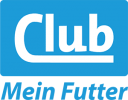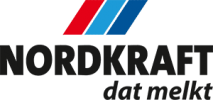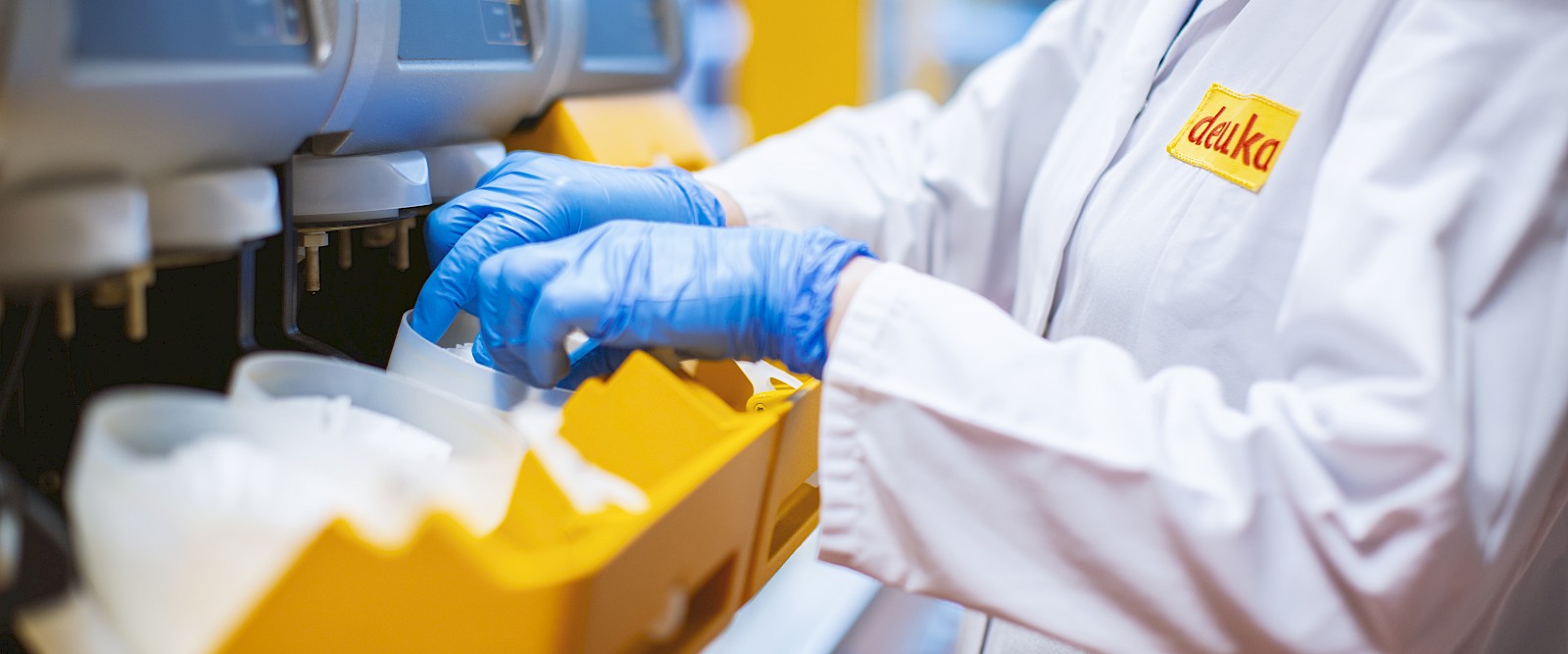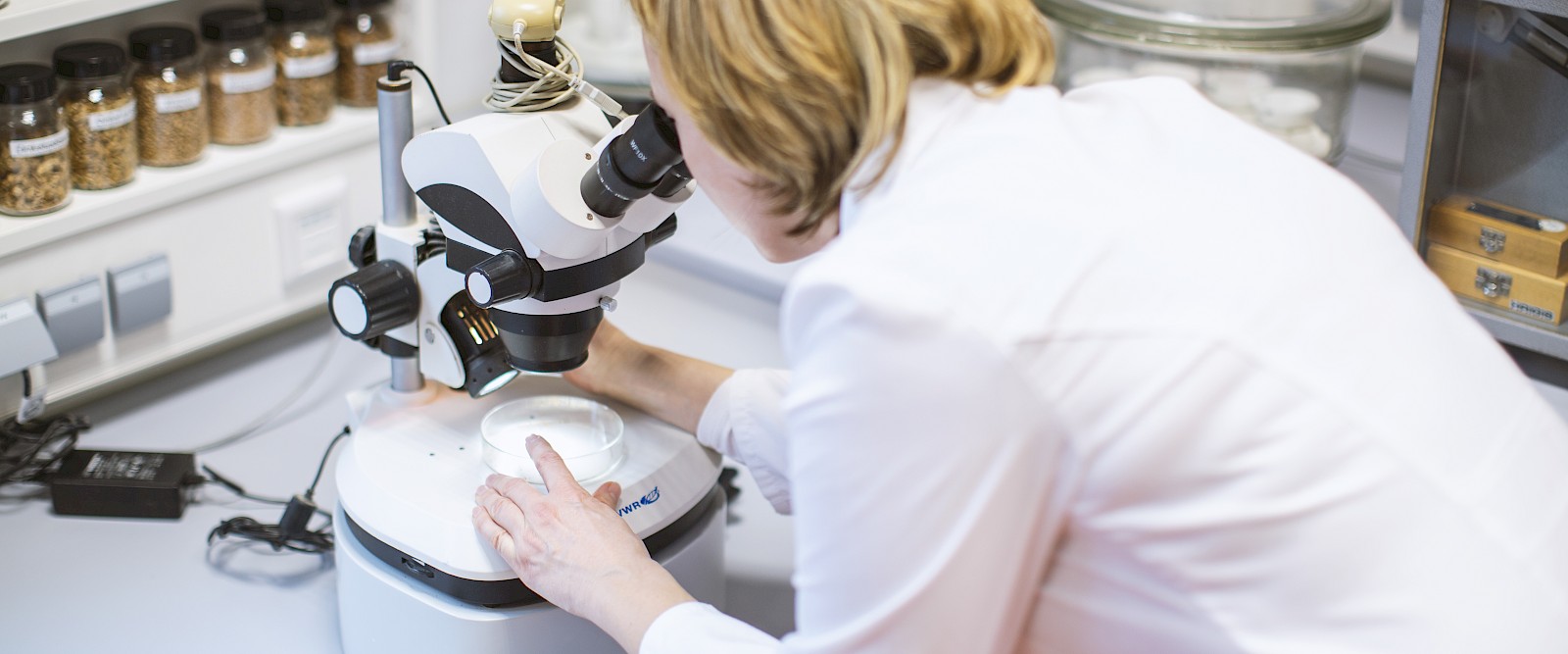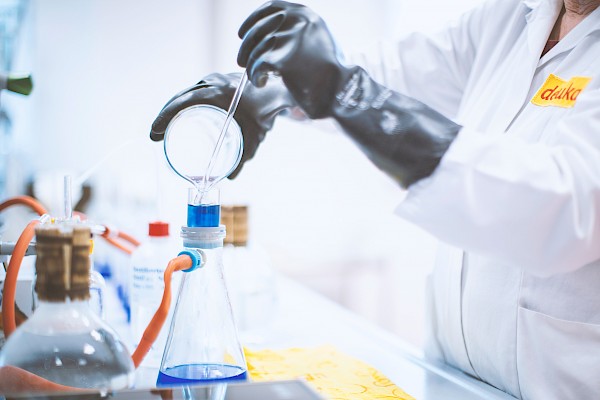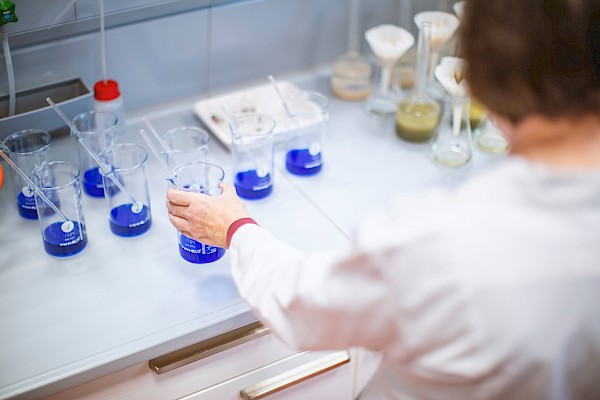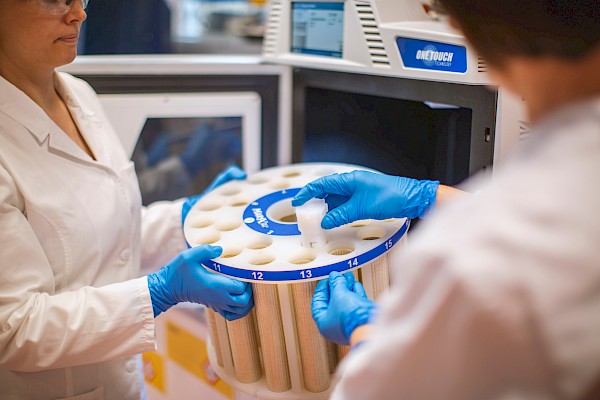Research & Innovation
Agriculture is one of the most advanced and productive sectors of the German economy. In addition to using the latest vehicles, equipment and machinery, farmers feed state-of-the-art feed to cattle, pigs and poultry to optimise milk and laying performance. From single feeds to complete feeding concepts: as a compound feed manufacturer, we support our customers and partners in agriculture in overcoming their operational challenges. To this end, we are constantly researching and developing innovative feeding solutions to optimise our feeds.
Traditionally innovative: from laying meal to opticon®
The foundation of our oldest feed brand deuka is already linked to an innovative idea: Over 90 years ago, the Dutch feed expert B. J. Stolp invented the first laying meal for feeding hens, thus ushering in a new phase of poultry feeding in Germany. This was followed by the development of many other feeds and feeding concepts for cattle and pig feeding in the post-war period.
Finally, at the turn of the millennium, the invention and patenting of opticon® technology marked another milestone in the company's history. The pressure hydrothermal digestion of individual feedstuffs and components subsequently led to numerous new, precisely fitting, highly compatible and high-performance feedstuffs and products for compound feed production.
Between stable and laboratory: development of modern feeding concepts
The work on our compound feeds does not end with their production in our factories. On the contrary, we are constantly working on improving our recipes and feeding concepts. To this end, we cooperate closely with experimental stables throughout the country in order to test our research results on optimal feeding in practice.
In addition, as part of our research and development programme, we are in close contact with institutes and universities that conduct research in the field of animal nutrition. Young academics have the opportunity to write scientific papers on current questions and problems in animal nutrition.

